For those trying to lose weight, the process can be complicated. Perhaps you have lost motivation, or you have hit a plateau. This is entirely natural, but you should always continue with determination.
Whether you need a little push, inspiration, or just some different strategies to implement in your weight-loss regiment, our set of tips are proven to aid in weight loss.
20 Weight Loss Tips You Should Give a Try Today
1) Monitor Your Intake — Track What You Eat
This may seem like a straightforward and obvious tip, but tracking what you eat each day does more than physically show you any unhealthy foods.
One study (2014) shows that many of our food choices are made unconsciously or mindlessly. We are not thinking about why we are making the food choices we are making (Chance).
If we write down what we eat, then we can examine the alternatives that could have been chosen as well as why we might have selected an unhealthy choice.
The study suggests that writing can allow you to examine four areas: “what choices are offered (possibilities), how decisions are made (process), how options are communicated (persuasion), and how intentions are reinforced (person).
You can begin to examine when, how, and why you make the choices you do. Once you examine this process, you can begin to retrain yourself to choose healthier alternatives or become more mindful when you are offered different options.
![]()
2) Use Technology to Help You
Tracking your caloric intake, food choices, and physical activity can promote better eating habits and healthier lifestyle choices, but how you track that activity can matter.
Studies show that using a phone app or some technological personal assistant (PA) can help you adhere to your weight loss goals. In the study, app users that tracked their exercise and dietary intake had lower BMI rates by the end of six months.
App and PA users were more likely to track their exercise consistently. This caused them to exercise more and exercise more consistently. Those who used the app also showed less caloric intake than those who used paper and pencils to track their intake.
Picking up your phone may be a simple way to track your activity and intake that can lead to weight loss or weight maintenance. Perhaps the on-the-go convenience of the phone is a better method to count what you eat and when you exercise.
3) Get Enough Sleep
Irregular, inconsistent, or insufficient sleeping habits can lead to weight gain and retention. Therefore, it might be in your best interest and in the interest of your weight loss goals to ensure that you are getting a full night’s rest.
The National Academy of Sciences notes that “insufficient sleep [leads] to weight gain despite changes in hunger and satiety hormones. . . which signal excess energy stores.”
The Academy argues that your brain signals a response to eat to stay awake. However, your body’s hormone levels indicate excess storage of energy. Therefore, you are eating when you do not need to because your brain thinks it may require the energy to stay awake.
Sleeping for the recommended amount of time can reduce unnecessary eating, which will help you reach your weight loss goals.

4) Eat Proteins to Lose Weight and Gain Lean Muscle
It is common to lose muscle while trying to lose weight; however, you can both lose weight and retain lean muscle by eating enough protein during your weight loss journey.
Data shows that “increased protein content of the diet, particularly in combination with exercise training, may increase weight loss and reduce the loss of lean body mass…”
Consumption of proteins can help curb hunger, which will reduce the chances of overeating. Protein can also boost metabolism, which will lead to great success in weight loss.
5) Eat Slower
In a fast-paced world where we are always on the go, it can be easy to eat quickly. Eating quickly can be detrimental to your weight loss goals. It is ideal for eating slowly and sitting down to focus on your meal.
Research shows that eating slower can “reduce your food intake and positively affect appetite ratings.”
It takes some time for your body to register the food in its stomach. Therefore, if you eat quickly, you may overeat and full too full. If you eat slowly, you allow time for your body to signal to your brain that it is content and satiated. This means you will stop when you are n longer hungry, rather than too full.
6) Do Not Sit for Too Long
For many, sitting is a significant part of our professional lives. We work at computers and sit in the car during the commute home. This excessive amount of sitting can be detrimental to your health and weight goals.
Studies show that the amount of time you sit correlates with the amount of fat you carry around your organs and your abdomen. Those who sit longer have more significant amounts of fat in their liver and gut.
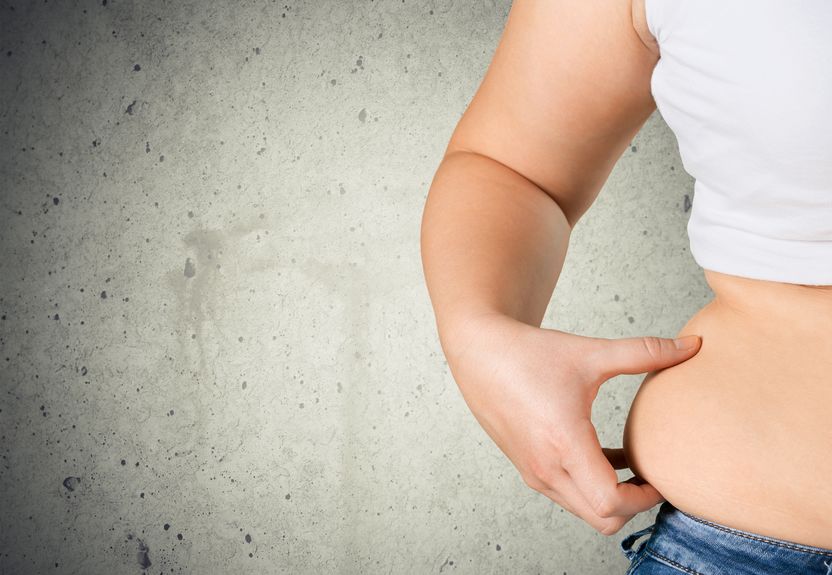
Excessive sitting may even compromise the exercise you do perform. While inconclusive, some studies suggest that those who sit between 6 to 9 hours a day will not experience the same health benefits of exercise as those who sit less during the day.
It’s a good idea to move around during the day, stretch at your desk, take breaks to get up from your desk, and maybe even get a standing desk.
7) Stop Drinking Soda (or at least drink less)
It is not a secret that soda is filled with sugar that can pack on the pounds. However, sodas can contain artificial sweeteners, like aspartame and high-fructose corn syrup. These sweeteners can compromise your eating habits and weight loss goals.
These sweeteners can cause an increase in both sugar intake and caloric intake. Those who drink soda tend to eat more food while also taking in the sugar from the drink. Those who drink sodas without these sweeteners tend to take in fewer calories and have reduced sugar intake.
It’s a good idea to drop that soda and pick up a drink without that sweetener.
8) Drink Water
Rather than drinking sweetened drinks, it is best to drink water for weight loss. It has been proven repeatedly to improve weight loss significantly.
Drinking water can “promote weight loss by altering metabolism” and “lowering total energy intake.” Those that drink water show changes in body composition, waist circumference, body fat, and body weight.
Drinking water before a meal can also reduce food intake by making you feel satiated, but it can also help the body metabolize the food quickly.
9) Eat More Fiber
While fiber is still contented and met with mixed reviews in the scientific community, some studies offer evidence that dietary fiber can help lose or maintain weight.
Fiber can help the body feel satisfied after meals, and it also decreases feelings of hunger. Those who increase dietary fiber tend to take in less food throughout the day and eat less.
It can also help to regulate the digestive system, so you do not feel bloated. However, you should be careful not to overeat fiber can cause constipation and gas.
10) Eat Fruits and Vegetables
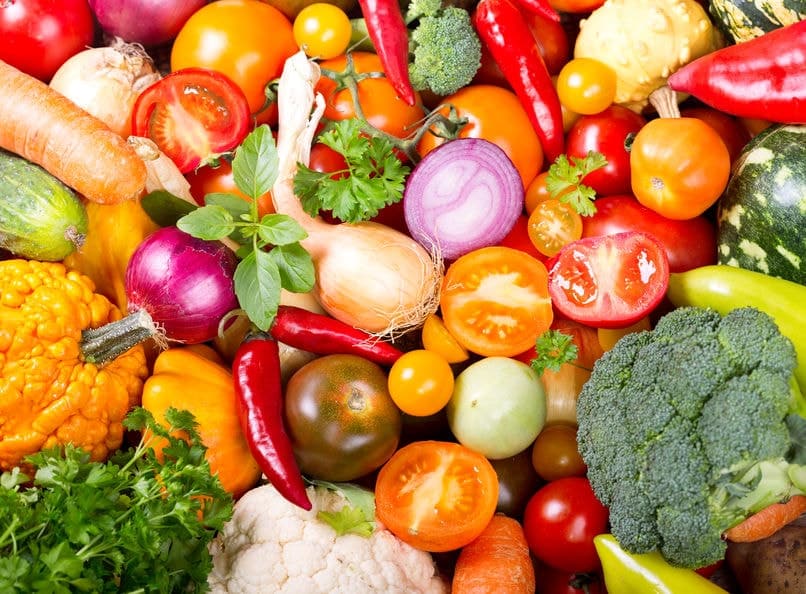
Fruits and vegetables are packed with nutrients that are good for your health, but they can also promote weight loss and maintenance.
Aside from having proper nutrients, fruits and vegetables have low energy densities. This means they little calories per gram, meaning they will not add a massive amount of calories to your daily intake.
Fruits and veggies can also make you feel full and satiate hunger. Since these foods are low in energy density, that means you can eat more substantial volumes of them compared to foods with higher energy densities.
In the long-term loading up on fruits and veggies can help you reduce your caloric intake and reduce overeating.
11) Try Intermittent Fasting
You can check out our guide on intermittent fasting to read about its health benefits, but intermittent fasting can also promote weight loss.
Intermittent fasting promotes the consumption of fewer calories while making you mindful of the food you are eating, meaning you are more likely to eat nutrient-dense foods.
Fasting also improves metabolic rates, while, at the same time, the body dips into its fat reserves during fasting periods.
The Harvard School of Public health shows research that intermittent fasting promotes weightless of 7-11 pounds over the first ten weeks. However, it becomes harder to lose weight after a year using this method.
After a year, intermittent fasting is more effective as a weight maintenance technique.
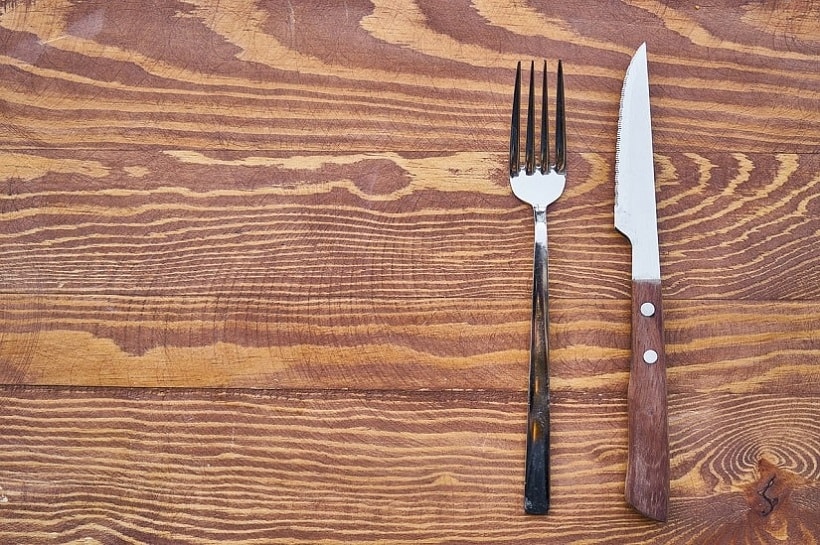
12) Fill a Smaller Plate
Humans are visual creatures. We want a full plate of food, but the size of that plate can affect how much we eat. Those with a larger plate tend to eat more than those with a smaller plate.
Doubling the size of a plate can increase consumption rates by 41%. On the other hand, those with smaller plates eat less. We like to eat a full plate of food without thinking about the size of the plate.
You can trick your brain into thinking it is eating more by placing your food on a smaller plate, which will make your portions seem more significant. Doing this can help decrease overeating and the need to go in for seconds.
13) Reduce your Stress Levels
Stress can significantly impact overall health, and this does not exclude your weight or BMI. Reducing your stress can improve your overall wellness and your waistline.
Those who participated in stress management and relaxation techniques in one study saw “statistically significant weight loss.”
Stress and depression are linked, and both of these can cause you to overeat or reduce your physical activity. Stress and depression release cortisol, which produces higher amounts of fat in the abdomen and around some organs.
Stress and depression can also lead to lower motivation and poor food choices. Lack of time can lead to fast food as a primary food choice, and stress can lead you to comfort food.
Getting in control of your stress can significantly impact your eating habits and your weight loss goals.
14) Do Not Skip Meals
Harvard Medical School advises against skipping meals. Skipping meals can lead to excessive snacking and overeating. This will negatively impact your weight loss goals.
Skipping meals can potentially your body to retain weight, thinking it will need to save as much of its energy and fat stores as possible. Unless you are safely employing the ketogenic diet, then skipping meals can cause you to gain weight.
Some research suggests that eating smaller meals throughout the day may be healthier than three set meals. Snacking throughout the day, rather than three set meals can decrease feelings of hunger, lead to better food choices, and leave you feeling more satisfied throughout the day.
15) Try a Protein-Rich Breakfast
While protein overall can help you lose weight, you may find that eating a protein-rich diet will better help you reach your weight loss goals.
One study showed that a protein-rich breakfast could influence appetite, food consumption, and meal habits. Those who ate breakfasts high in protein showed lower body weights, lower body mass indexes, and less re-gain of weight lost.
At the same time, these protein breakfasts decreased snacking, food take in general, and night eating. Eating a protein-rich breakfast may help you reduce your snacking and avoid night eating.
16) Balance the Bacteria in your Body, Especially Your Gut
While we may not think about the kinds of bacteria in our body until a harmful bacterium makes us sick, taking notice of the good bacteria in our bodies can help weight loss.
The combination of bacteria found in our guts is called “microbiota,” and the composition of your microbiota can dramatically affect your weight.
In studies, changes in microbiota caused by consumption of artificial sweeteners and alterations in your body’s natural patterns can impact your gut’s microbiota. An imbalance shows a higher likelihood of weight gain, while a balanced microbiota helps retain a lean mass.
It may be time to think about the kind of bacteria you are, or you are not, putting in your body.

17) Eat More Ginger
This may seem like a myth, but studies have shown that ginger can be an effective tool for weight loss and weight management.
Those who eat meals with ginger, or a ginger supplement, have less feelings of hunger and will overeat less.
Ginger also improve thermogenesis, which is needed to break down fat in the body.
One small change you can make to help you in your weight loss goals is to add some ginger to your diet.
18) Use Caffeine to Your Advantage

It is not surprising that most dietary supplements contain caffeine. Caffeine is a popular and significant tool used to aid in weight loss.
Caffeine is also one of the most common ingredients used in pre-workout supplements.
It is well-known that caffeine allows you to be alert and focused, which can improve your workouts and result in better workout results.
Studies show that caffeine intake can affect weight, BMI, and fat mass. In participants, caffeine intake, or increased caffeine intake, resulted in lower body mass indexes and overall lower weights.
This is not to say that you should be relying on caffeine, but you can consider safely using it to improve your results.
Caffeine can be found in teas, coffees, and supplements.
19) Overcome Cravings and Addictions
Addictions and cravings can be difficult to kick because they have biologically chemical holds on our body. It’s not just that we think we need it, our body tells us chemically that we need it.
Science shows that sugars release chemicals in the brain, similar to alcohol, opioids, and other addictive drugs. Your body begins to build a dependence on the food.
These foods release dopamine in the reward center of the brain, creating a positive response. This means you will want to eat it again because it feels good and makes you happy.
Beating food cravings and addictions and can be difficult because of the chemical responses involved with the body, but overcoming addiction is possible with time, effort, and guidance if needed.
20) Exercise Regularly

The basic principle of weight loss is to burn more calories than you consume or restrict your calorie intake. The most effective way to lose weight is to exercise.
Exercise allows the body to lose weight while building lean muscle. It is safe and effective, and it is proven to work. The body is designed to move, so it is best to work it towards your goals.
Reaching Your Weight Loss Goals
The road to weight loss can be long, tiring, and sometimes disheartening. However, there are always methods to implement that may help you in that journey.
The weight loss tips and methods we have given have been scientifically proven to aid in weight loss. One or any number of these methods may provide you the small push you need to reach your goals.
The biggest tip is to be patient. Weight loss is not instant. It will take time and effort, and your patience and determination will be rewarded.
References
- Bell, D.S. (2015). Changes seen in gut bacteria content and distribution with obesity: causation or association? Postgrad Medicine, 127(8). https://www.ncbi.nlm.nih.gov/pubmed/26474235
- Chance, Z., Gorlin, M., & Dhar. R. (2014). Why Choosing Healthy Foods is Hard, and How to Help: Presenting the 4Ps Framework for Behavior Change. Customer Needs and Solutions, 1(4); 253-262. https://link.springer.com/article/10.1007/s40547-014-0025-9
- Harvard School of Public Health. (2019). Diet Review: Intermittent Fasting for Weight Loss. Nutrition Source, https://www.hsph.harvard.edu/nutritionsource/healthy-weight/diet-reviews/intermittent-fasting/
- Harvard Medical School. (2013). Eating Frequency and Weight Loss. Harvard Health Publishing. https://www.health.harvard.edu/diet-and-weight-loss/eating-frequency-and-weight-loss
- Henson, J., et al. (2017). Sedentary Time and MRI‐Derived Measures of Adiposity in Active Versus Inactive Individuals. Obesity, 26(1). https://onlinelibrary.wiley.com/doi/full/10.1002/oby.22034
- Holden, S. S., et al. Whether Smaller Plates Reduce Consumption Depends on Who’s Serving and Who’s Looking: A Meta-Analysis. Journal of the Association for Consumer Research, 1,(1). https://www.journals.uchicago.edu/doi/abs/10.1086/684441
- Leidy, H.J., & Racki, E.M. (2010). The addition of a protein-rich breakfast and its effects on acute appetite control and food intake in ‘breakfast-skipping’ adolescents. International Journal of Obesity, 34(7). https://www.ncbi.nlm.nih.gov/pmc/articles/PMC4263815/
- Markwald, R.R, et al. (2013). Impact of insufficient sleep on total daily energy expenditure, food intake, and weight gain. PNAS, 110(14); 5695-5700. https://www.pnas.org/content/110/14/5695.short
- Mettler, S., et al. (2010). Increased Protein Intake Reduces Lean Body Mass Loss during Weight Loss in Athletes. Medicine & Science in Sports & Exercise. https://www.researchgate.net/profile/Samuel_Mettler2/publication/38114571_Increased_Protein_Intake_Reduces_Lean_Body_Mass_Loss_during_Weight_Loss_in_Athletes/links/5b44ab8aa6fdcc6619147dde/Increased-Protein-Intake-Reduces-Lean-Body-Mass-Loss-during-Weight-Loss-in-Athletes.pdf
- McGrievey-Tuner, G.M., et al. (2013). Comparison of traditional versus mobile app self-monitoring of physical activity and dietary intake among overweight adults participating in an mHealth weight loss program. Journal of American Medical Informatics Association, 20(3); 513-518. https://academic.oup.com/jamia/article/20/3/513/741491
- Muhammad, S. M., et al. (2012). Ginger consumption enhances the thermic effect of food and promotes feelings of satiety without affecting metabolic and hormonal parameters in overweight men: A pilot study. Metabolism, 61(10). https://www.ncbi.nlm.nih.gov/pmc/articles/PMC3408800/
- National Center for Chronic Disease Prevention and Health-Promotion Division of Nutrition and Physical Activity. Research to Practice, 1. https://www.cdc.gov/nccdphp/dnpa/nutrition/pdf/rtp_practitioner_10_07.pdf
- Rada. P., Avena, N.M., & Hoebel, B.G. (2005). Daily bingeing on sugar repeatedly releases dopamine in the accumbens shell. Behavioural Neuroscience. https://www.sciencedirect.com/science/article/abs/pii/S0306452205004288
- Stookey, J. D., et al. (2012). Drinking Water Is Associated With Weight Loss in Overweight Dieting Women Independent of Diet and Activity. Obesity, 16(11). https://onlinelibrary.wiley.com/doi/full/10.1038/oby.2008.409
- Tabrizi, R., et al. (2018). The effects of caffeine intake on weight loss: a systematic review and dos-response meta-analysis of randomized controlled trials. Critical Reviews in Food, Science, and Nutrition. https://www.ncbi.nlm.nih.gov/pubmed/30335479
- Tordoff, M.G. (1990). Effect of drinking soda sweetened with aspartame or high-fructose corn syrup on food intake and body weight. American Journal of Clinical Nutrition, 51(6); 963-969. https://academic.oup.com/ajcn/article-abstract/51/6/963/4695307


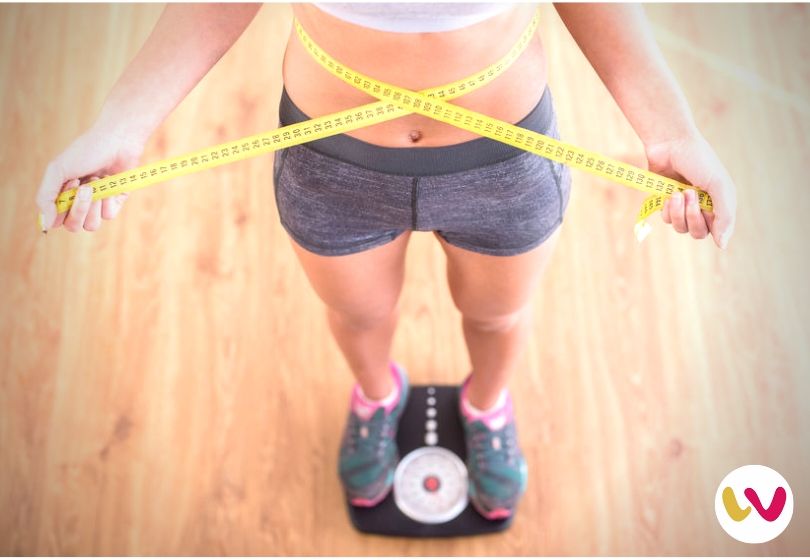
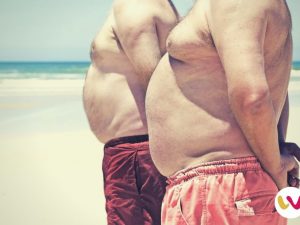





Add Comment